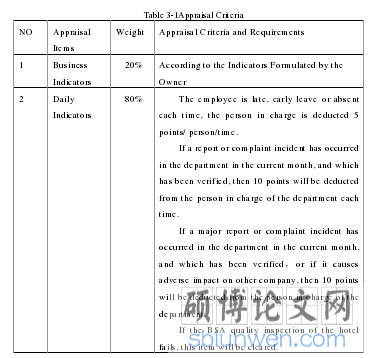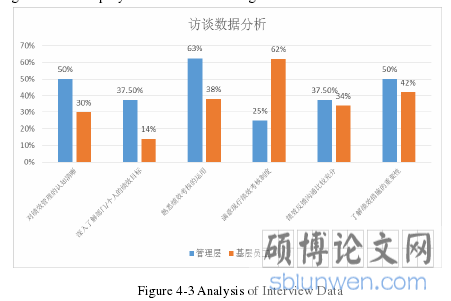Chapter I Introduction
1.1 Research Background and Research Significance
Currently, it seems that middle-end hotels have become a hot topic of China's hotel industry. Previously, most of the hotels developed by land agents went for the several positions of being five-star and high-end, meanwhile, budget hotels such as Home Inn, Hanting Hotels and Nine Days Hotel was in full swing, especially for budget chain hotels, whose operations was soaring at the time, the returns of investment of which could basically reach what was expected; however, with the rise of property management fees, budget hotels at most sections do not make profits, not to mention high-level hotels. Under the circumstance of domestic market being crazily occupied by the internationally high-level hotel brands which operates their businesses at a high cost, many of them now have the situation of running behind their expenses, and they cannot survive unless being constantly invested by the investor. Under the slump of the big domestic climate, many investors tend to think in reason and they no longer invest in high-level hotels blindly. Brands that have entered the field of middle-end hotels include hotel brands such as All Seasons, Mehood, Yitel, Atour Hotel, STARWAY Hotel and Coffetel.
In the current stage at which hotel service and management are increasingly becoming homogenized, if one wants to remain invincible and highlight the features of his services and products, the most important thing is to start from human resources, for that the core of all kinds of resources in a hotel is human resources. It is usually one of the key management work of a hotel to strengthen the management to human resources in a hotel; and the work of human resources management in a hotel is a complex and systematic project, which mainly includes modules such as the strategic planning of a hotel's human resources, the recruitment and allocation of a hotel's personnel, the training and development of a hotel's staff, the management on strategic performance of a hotel's staff, the management on the relationship between the remuneration of a hotel's staff and how it can motivate them and the design of their career channels. As one of the core modules of hotels' human resources management, performance management has even become a necessary means for a hotel to make effective use of human resources management.
...........................
1.2 The Framework of the Thesis and Its Main Content
In this thesis, by taking the staff performance management system in Hotel F as the research object, guided by performance management theories and the related performance management tools, it tries to have a full understanding of the current situation of Hotel F's performance management system through on-site surveys, and it makes an analysis on the situation, and figures out the currently existing problems and factors. Then, it makes an optimized design on Hotel F's performance management system by using Key Performance Indicator, to solve the performance management problems arise in the development process of Hotel F, establish a performance-oriented performance management system which gives consideration to one's behaviors and abilities, improve Hotel F's performance management standard, and achieve the guidance to the staff on their self-development, which can then be condensed into the inner power for the development of Hotel F, so as to obtain new competitive edges and ensure the realization of Hotel F's strategies.
............................
Chapter II Literature Review
2.1 On the Origin of Performance Management and the Related Theoretical Foundation
The manifestation of performance management in enterprises at the very beginning is mainly about conducting performance appraisal. Performance appraisal has a long history, which can be traced back to the period of Three Sovereigns and Five Emperors. The sentence of "Serving as the leader of guarding the forest, he is not misled even in a bad weather" in the Classics during the Emperor Yao of the Book of Documents refers to the fact that Emperor Yao had tested Emperor Yu on performance appraisal before he abdicated and handed over the crown to him[1]. However, with the advancement of economy and the management level, more and more managers and researchers have realized the limitation and insufficiency of performance appraisal. Performance appraisal is an offspring that is linked up with social production activities which is formed and developed gradually on the basis of the improvement and development to traditional performance appraisal. The Industrial Revolution in the 18th century promoted the Western society's research on enterprises and workers, so that a series of management theories emerged, but the word of "performance appraisal" did not emerge clearly, and the research achievements of most scholars contained the description and insights of performance management. A series of management theories began to emerge:
First, the theory of target management. The theory of objectives by MBO is proposed by Peter F. Drucker, the father of modern management, and his theory is of great significance to the theoretical system of management. Drucker believes that "each job must be aimed at the entire enterprise in order to achieve success. In particular, the focus of each manager must be centered on the success of the entire enterprise. The goal of corporate achievement must be expected with the management The achievements are consistent. Their achievements are measured by their contribution to corporate achievement." Second, Drucker emphasizes the internal control of goal management, which is the self-control of employees in management. Drucker pointed out: "Target management can make the pursuit of common welfare become the goal of every manager, replacing external control with more strict, precise and effective internal control. Target management is the use of behavioral science theory, by the company's directors and employees. Work together to develop a common goal that will determine what the manager needs to do, the criteria that need to be met, and how this standard is achieved. The employee self-controls and self-assessment goals are implemented. It is characterized by various management activities. The guide uses “goal” as the standard and evaluates its contribution to achieve the “goal” outcome. The goal management has the following aspects:
..............................
2.2 The Meaning of Performance Management
Performance management is the process of setting performance goals and performance planning, effectively decomposing the company's strategic goals into units, positions and employees. Through the implementation and management of team and individual performance goals, performance evaluation, and performance feedback, organizations can effectively understand the performance of performance goals and plans, and can identify problems that affect the achievement of performance goals. It connects each post in a line like a line, giving each employee a strategic mission. The customization of the employee's performance goals allows the company's strategy, position and staff to be integrated. Therefore, performance management is an important means to realize the strategic goals of the enterprise. It uses the target decomposition method and effective implementation to let the enterprise complete the strategy. Based on this, optimize the management process of the enterprise, standardize the management methods, improve the management level of the managers, and improve the self-management ability of the employees. The results of performance appraisal can also be used as an important basis for employee position adjustment, salary distribution, and career development.

..................................
Chapter III Current Situation of Hotel Performance Management ............................ 21
3.1 F Hotel Introduction ...................................... 21
3.2 Analysis on the Current Situation of F Hotel Performance Appraisal.................. 25
Chapter IV A Diagnosis and Analysis on the Problems Existing in F Hotel’s Performance Management System .......................... 28
4.1 F hotel performance management problem diagnosis tool design ....................... 28
4.2 Problems that Existing in F Hotel’s Performance Management .......................... 34
Chapter V F Hotel Performance Management System Optimization Plan And Implementation Guarantee ....................... 41
5.1Solutions for the Performance Management System .......................... 41
5.2Adjustment of the Concept of Performance Management .................... 42
Chapter V F Hotel Performance Management System Optimization Plan And Implementation Guarantee
5.1 Solutions for the Performance Management System
The guiding ideology of the solutions to the performance management system is that the performance management must be fair and impartial, on the basis of effective performance appraisal, the performance of individuals, departments and organizations can be fundamentally improved, meanwhile, hotel performance management can be effectively implemented to ensure the orderly promotion of the strategic objectives of enterprises while also allow individuals to grow, etc. the principle of orderly implementation of performance management should include the principle that emphasizing the coordination of organizational objectives and personal objectives in accordance with hotel performance management, strengthening the common growth of organizations and individuals, and forming a "win-win" situation; hotel performance management should emphasize the principle of effective communication, the communication among decision makers, examiner and examinees ensures the effective implementation of performance management. Performance management is a comprehensive process, which mainly includes five steps “performance planning - performance implementation - performance appraisal - performance feedback - performance improvement and performance effect application”.

............................
Chapter VI The Research Conclusion and Expectations
6.1 The Limitations of the Research
Although the research of this paper considers the logicality and integrity of the staff performance management system design, there is no deeper explorations in the integration of performance management system and other human resource management systems. These deficiencies will be gradually improved in the course of further studies and practices.
In the research process, this paper integrates three management tools which are objective management, integrated balanced scorecard and key performance indicators to achieve the optimal design of Hotel F’s performance management system. In combination with the actual situation of the hotel, detailed operation methods are acquired from the selection of performance indicators, the determination and decomposition of performance targets, and the process of performance management. From the perspective of concrete implementations, the corresponding safeguard measures are proposed respectively, but there are still some aspects that need to be considered and paid attention to:
The first is to fully encourage the staff. In the performance management process, it is necessary to emphasize staff participation and change the situation in which evaluators unilaterally set performance goals and employees passively execute work in the past. As giving the staff opportunities of participation itself is as incentive for them, only when they truly take part in every steps of performance targets formulation, performance process management and performance appraisal will they strive hard and try every means to achieve the performance targets they have participated in setting and promised in person.
reference(omitted)
